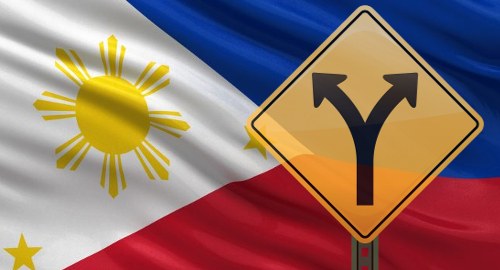 The Philippines is hoping to cluster its online gambling licensees into new ‘hubs’ outside Manila to ease the pressure on the downtown core.
The Philippines is hoping to cluster its online gambling licensees into new ‘hubs’ outside Manila to ease the pressure on the downtown core.
Speaking at Friday’s kickoff of the inaugural Philippine Asian Gaming Expo (PAGE), Andrea Domingo, chair of the Philippine Amusement and Gaming Corporation (PAGCOR), hailed the construction of two online casino ‘hubs’ north and south of Manila to serve the country’s growing roster of Philippine Offshore Gaming Operators (POGO).
The POGO industry’s target market is mainland Chinese gamblers, so licensees have brought more than 100k Chinese nationals to the Philippines to handle customer service. The influx of all these new bodies has put serious demands on Manila’s available office space and Filipinos have often found themselves priced out of the residential market as landlords jack up the rent due to high demand.
Domingo said the Oriental Group (which provides POGOs with live dealer solutions via its Oriental Game offshoot), was building one hub south of Manila in Cavite City that will accommodate 20k workers and another in Clark City that will host around 5k staff. The Cavite hub is expected to open next month, offering both office and residential space.
To incentivize POGO operators to enter these hubs, Domingo said companies based in these hubs will be issued five-year licenses rather than the standard three-year term. The hubs will also feature satellite offices of PAGCOR as well as the government’s immigration and tax bureaus to ensure both convenience and compliance with all relevant laws.
Local media quoted Oriental Group GM Kevin Wong saying the hubs would help ease the “social tensions” that some local residents have felt regarding feeling the influx of Chinese. “When all other people saying so and so with our industry, we want to remove that. We cant really isolate but at least put it in a place.”
Not everyone is thrilled about the new hubs. Page One quoted Senator Leila M. de Lima calling the Cavite hub “Pogo Island” and expressed fears that “this could be the start of a possible colonization if [Chinese companies] decide to purchase and occupy more lands in different parts of the country.”
In a similar vein, Senator Joel Villanueva said this week that he feared that the Philippines was “becoming the sin city of China with very little benefit to Filipinos and our economy.”
The Philippine government has been taking steps to draw more money from its POGO sector, including new requirements for all foreign POGO staff to pay the required withholding tax on their salaries that is expected to add P24b (US$469m) to the government’s annual tax take.